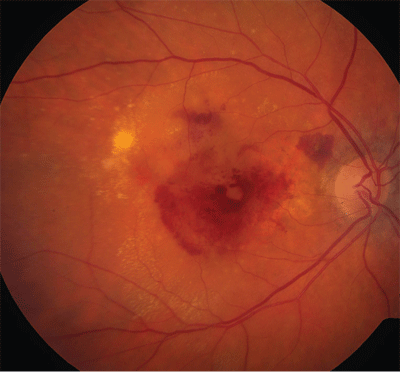The Complications of Age-Related Macular Degeneration Prevention Trial (CAPT) found that low-intensity laser treatments fail to have any effect on the progression of vision loss due to AMD. The results of the trial were published in the November issue of Ophthalmology.
CAPT, sponsored by the National Eye Institute (NEI), studied 1,052 participants over the age of 50 who had at least 10 drusen 125m in diameter or greater per eye and a visual acuity of at least 20/40. One eye of each participant was treated; the other was observed as a control. Participants underwent one session of 60 burns of low-intensity laser treatment in a grid pattern between 1,500m and 2,500m from the foveal center.
If the drusen had not dissipated satisfactorily at 12 months, the participant again underwent low-intensity laser treatment. This time, the treatment consisted of a grid of 30 low-intensity burns between 1,000m to 2,000m from the fovea. Participants were monitored twice yearly and color fundus photos were taken at each session.
At five years, both 188 treated eyes and 188 observed eyes had VA scores of at least three lines worse than recorded upon initial visit. Also, both treated and observed eyes needed twice as much contrast to read the Pelli-Robson chart.
Late-stage AMD (RPE detachment, choroidal neovascularization or endpoint geographic atrophy) developed in 209 treated eyes and 220 observed eyes, while 114 other participants developed late AMD in both eyes.
|
|
| Neovascular age-related macular degeneration, as seen here, developed in 141 treated eyes and 141 observed eyes. |
The NEI has already launched another study, the Age-Related Eye Disease Study 2 (AREDS 2), to build on the success of the original AREDS, which recommended dietary modifications to slow vision loss from AMD.
At present, the only established way to decrease the risk of vision loss in people with large drusen (early AMD) is to take daily supplements of vitamins and minerals as used in the NEI-supported AREDS, says Dr. Sieving.
CAPT Research Group. Laser treatment in patients with bilateral large drusen: the complications of age-related macular degeneration prevention trial. Ophthalmology 2006 Nov; 113(11):1974-86.


